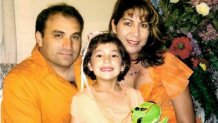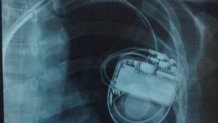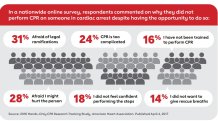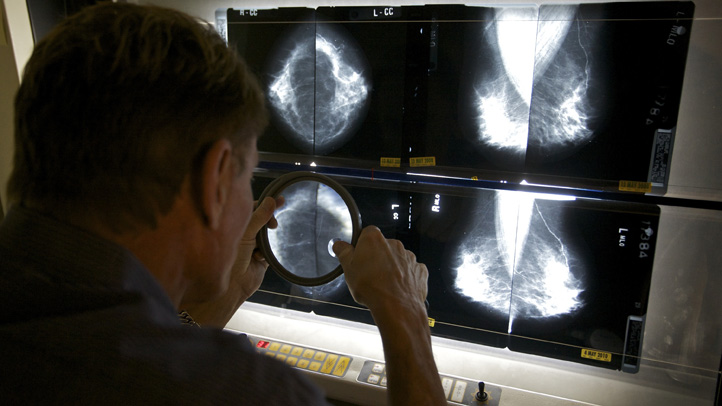February is American Heart Month, a time to shine a light on cardiovascular health, especially for women and communities of color.
According to the Dallas-based American Heart Association, cardiovascular disease claims more women’s lives than all forms of cancer combined, killing 1 in 3 women. It's also the leading cause of death overall in the United States, claiming nearly 700,000 lives a year, as reported recently by the White House.
Every Monday this month, NBC 5 Today will air weekly segments to share lifesaving information for you and your family.
To kick off the series, ER nurse and survivor Laura Rodriguez shared her story of overcoming the odds and is encouraging people to get the CPR training that saved her life.
Get DFW local news, weather forecasts and entertainment stories to your inbox. Sign up for NBC DFW newsletters.
In August 2006, she experienced a cardiac event while dropping her 5-year-old daughter off at an elementary school in Dallas.
An avid runner since she was young in Mexico, her routine was to run on the track alone across from the school after dropping her daughter off each morning – this was a rare day when she walked her in and waited. It was at that moment, she experienced cardiac arrest in front of multiple people.

“I walked into the school without any symptoms and all of the sudden, I just collapsed,” she recalls. “I was so lucky that the school nurse was close around there and she performed CPR on me.”
Health Connection
Get connected to a healthier life.
She woke up days later in the hospital – with more challenges ahead.
A biopsy showed an enlarged heart with no more space to pump – a condition called Cardiomyopathy. She had surgery to implant a pacemaker.
Months later, tests showed a random virus that our bodies can normally fight off had incubated in her heart and left her vulnerable to even more cardiac events. Doctors told her that this was more likely to happen when she was sleeping and no one would know to help, meaning a pacemaker literally keeps her strong and functioning.
Her pacemaker has since saved her life nine times. It even shocked her while on vacation in Australia and Puerto Rico.

“It keeps me alive. I get to enjoy life every day with my family – my daughter, my husband,” she said.
Rodriguez is now 50 and stays active by exercising and boxing.
Through her job as an ER nurse, she tells warns her patients about keeping a close eye on their health and encourages them not to be afraid to seek help. Knowing the warning signs of heart attack and stroke – especially in women – is important.
“I do have to talk to the patients and be very strict with them. I tell them whenever they feel sick or have a symptom that is unusual, do not think twice. Go ahead and call 911,” she said.
She’s also a huge proponent of CPR training, the very act that changed her life.
Be The Beat
More than 350,000 out-of-hospital cardiac arrests happen each year in the United States. During cardiac arrest, immediate CPR – short for Cardiopulmonary Resuscitation – can double or triple a person’s chance of survival.
But according to the American Heart Association, bystanders only perform CPR 46 percent of the time.
Their data from a 2017 study is eye-opening, to say the least:

In that same study, there’s a clear disparity between women and men. Only 39% of women received CPR from bystanders in public compared to 45% of men.
The American Heart Association believes the reasons why range from fear of inappropriate touching to physical injury. AHA’s CPR training is working to address gender-related barriers to improve bystander CPR rates for women. This includes the representation of women in training materials and informational videos.
That's why the organization Be The Beat campaign this month is encouraging people to learn CPR.
In the U.S., an average of 1 in 2 people knows how to help with CPR in a life-or-death situation. In North Texas according to the AHA, the average is only 1 in 4. The reasons for this are unknown but that means more work has to be done in getting people trained in CPR.
“The goal by the Heart Association is to have at least one person in every family in North Texas trained in CPR,” said Matt Zavadsky, Chief Strategic Integration Officer for MedStar of Fort Worth.
He stopped by NBC 5’s studios on Monday to teach CPR and the use of an AED (automated external defibrillator) in case someone collapses from a cardiac event. Make sure you know where an AED is when visiting public places or offices. Those devices – along with knowledge of proper CPR performance – can save a life until medical help arrives.
Click the video below to watch.
The song 'Stayin' Alive' by the Bee Gees is a popular song used in finding the right beat to perform chest compressions to. But the AHA has created an entire playlist of songs that follow the 100 to 120 beats per minute required for CPR.
If you want to learn in person, click here to find a CPR class through American Heart Association’s website.
MedStar also provides CPR classes for groups of 10 or more as requested at their headquarters on Alta Mere Drive in Fort Worth. They can also host classes at community events, city meetings and area businesses in MedStar’s service area.
The AHA also provides adult, child and infant CPR kits for families to learn at home. Click here for details. You can also email jim.myers@heart.org for assistance.
During American Heart Month, CVS MinuteClinic locations nationwide are offering no-cost heart health screenings. Click here to download a free heart health screening voucher and present it to a MinuteClinic location to learn your numbers. CVS Health is a national sponsor of Go Red for Women.
For Heart Month, the AHA is also encouraging people to spread the word on social media using #WearRedDay, #WearRedAndGive, #HeartMonth, #CPRwithHeart and #GoRedforWomen.




